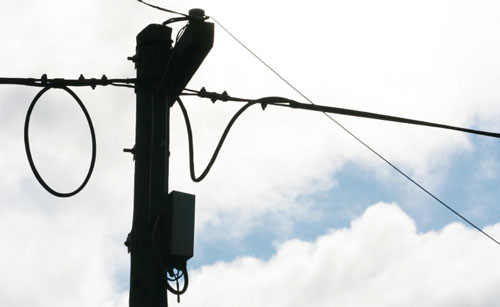
Telkom was combative in its presentation at the Independent Communications Authority of SA’s (Icasa’s) public hearings on local-loop unbundling on Wednesday. The company argued that unbundling wouldn’t necessarily help SA achieve its “developmental objectives” and that the process could prove counterproductive.
Local-loop unbundling is the process that would allow other operators access to Telkom’s “last-mile” infrastructure. Telkom said there were a lack of guidelines explicitly laying out what form unbundling should take, and that Icasa was “conflating” stipulations about leasing network facilities with those concerning unbundling of facilities.
It also suggested Icasa didn’t necessarily have the authority to decide on the process and its definition of unbundling, particularly the parts that referred to facilities leasing, including unfounded assumptions about what the process should entail.
Telkom claimed that, despite suggestions to the contrary, unbundling would have a negative effect on the company because it incurred a loss by providing retail fixed-line services. This is known as the “access line deficit” and Telkom wants Icasa to consider this in its planning.
However, Telkom refused to disclose the quantum of the deficit, saying Icasa already had the information at its disposal and it did not want to disclose it publicly.
Icasa said price control regulations allowed Telkom to increase line rental rates more than it did in recent years and that if the access line deficit existed it wanted to know why the company elected not to increase fixed-line rentals by more than it did.
Telkom said it opted to limit increases because of pressure from government to keep the cost of fixed lines down due to it being a barrier-to-entry for the unconnected.
In its written submission to Icasa, Telkom said there were a number of “myths” around the unbundling process that it wished to “debunk”.
The first “myth” was that its network has been paid for with taxpayers’ money. The operator said that although it inherited R12,8bn worth of buildings, network infrastructure and equipment when it was corporatised in 1991, it also inherited liabilities worth R14,3bn.
It added that since 1991, it had invested more than R65bn in its network. This was despite having received only R4,4bn from government during the same period.
Another “myth” was that Telkom’s copper network had already been paid off. It said the network required ongoing investment and maintenance and that the company depreciated its copper cables over 20 to 40 years.
The suggestion that local-loop unbundling would increase broadband penetration in underserviced areas was yet another “myth”. It argued that unbundling was of no use or benefit to areas that didn’t have existing infrastructure and that it would discourage the company from building fixed-line access networks in those areas.
Telkom also argued that there was a commonly held but incorrect assumption that the implementation of local-loop unbundling was a simple process that could be done quickly and would create jobs.
It said it employed three to four times as many people than the country’s two largest mobile operators and that were unbundling to reduce its revenues it was possible it would have “no alternative but to review its workforce size”. — Craig Wilson, TechCentral
- See also: Icasa halts public hearings as Telkom goes on attack
- Top image: Peter Baker
- Subscribe to our free daily newsletter
- Follow us on Twitter or on Facebook
- Visit our sister website, SportsCentral (still in beta)

